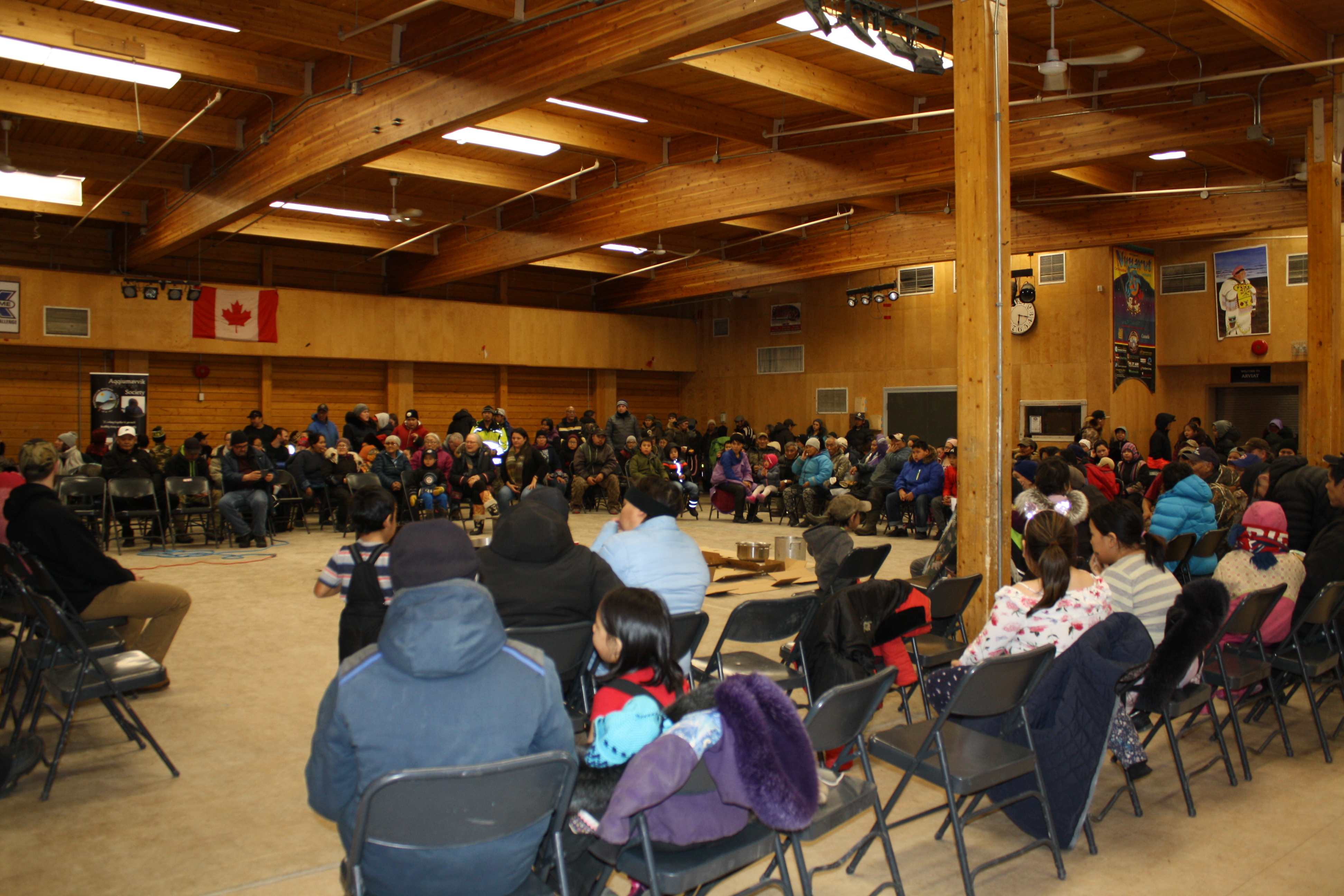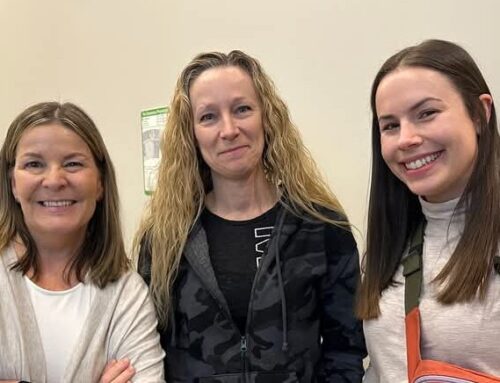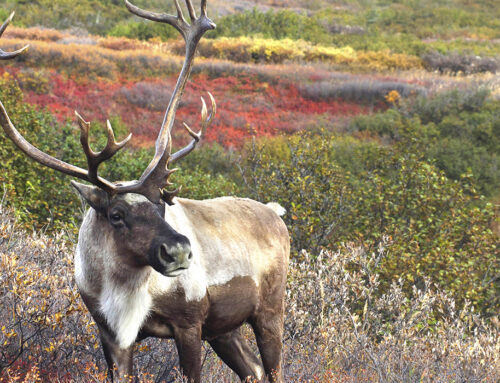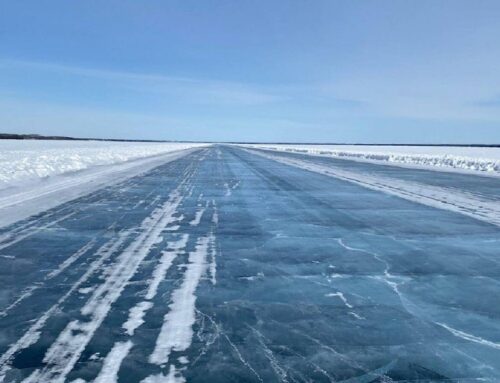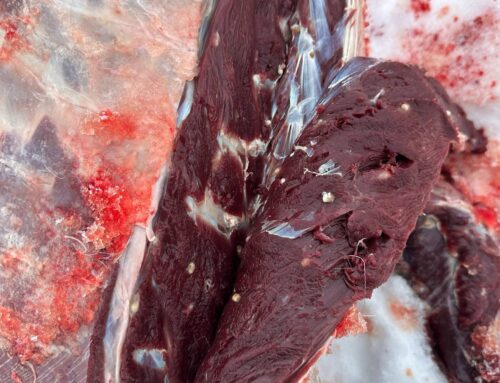November 14, 2019 – The Beverly and Qamanirjuaq Caribou Management Board (BQCMB) met in Arviat, Nunavut last week – its first meeting in Nunavut in almost 15 years.
The meeting was planned in collaboration with organizers of a Caribou Workshop that provided information to the BQCMB, local schools and Arviat residents about caribou management and contaminants and diseases in caribou. It included a community feast that brought young and old together to share a meal and give thanks for a precious resource that has sustained northern Indigenous peoples for thousands of years.
This type of relationship-building with caribou people is what is needed to lead the Board into the future, according to Chair Earl Evans. “By holding meetings in caribou range communities we hear directly from the people who are being most affected as the caribou continue to decline. We need their input to be able to make recommendations that will help conserve these herds for the Inuit, Dene, Cree and Metis people that need them.”
The board discussed and resolved to address the impact of roads and industrial development on caribou, sale of caribou meat, and climate change. In doing so, members acknowledged the effects of these human influences leading to more wildfire, increased predation, overhunting and a host of other factors contributing to the decline of both the Beverly and Qamanirjuaq herds.
Given these issues, the Board unanimously passed a motion to support the establishment of Indigenous Protected Areas (IPAs), where human activity could be managed through a guardianship program. The proposed Seal River Watershed Indigenous Protected Area is the first to be supported. Once created, the Seal River Watershed IPA would protect the area – a pristine expanse of forests, wetlands and tundra in Northern Manitoba – from industrial development.
BQCMB member Ernie Bussidor, of Sayisi Dene First Nation from Tadoule Lake, Manitoba, is the project leader for the Seal River Watershed initiative. “The idea is to promote ecotourism and cultural tourism within the watershed,” he explained to the Board. “Every aspect of our Dene and Cree cultures, spirituality and identities are rooted in our relationship to the caribou and to the lands which sustain us.”
The need for youth to become more involved in caribou issues was another strong theme running through the week. The BQCMB would like to see more youth attend meetings like these because they are the leaders of tomorrow. And more youth will be able to participate more often if meetings are held in their communities.
The Board determined the BQCMB meetings in 2020 will be held in Churchill, Manitoba in April, which will be 20 years after the last meeting in that community, and in Yellowknife, Northwest Territories in November, 19 years since the Board last met there. A future meeting in a northern Saskatchewan community will be discussed further.
Elder August Enzoe, of Lutsel K’e Dene First Nation from Lutsel K’e, NWT, often takes young people out on the land with him. “I do a lot of travelling around with the kids in the bush, show them our Dene ways,” he said. “I tell them that we’ve got to respect the caribou that’s left now, or in the future, the caribou will be gone.”
Long ago his elders told him: “One day you’ll go up the hill, and look out on the land and see an old caribou trail, and you’ll have tears in your eyes.”
For more information, contact:
Lynne Bereza
BQCMB Communications Coordinator
Email: caribounews@outlook.com
Ph: 204-871-0517
http://arctic-caribou.com
